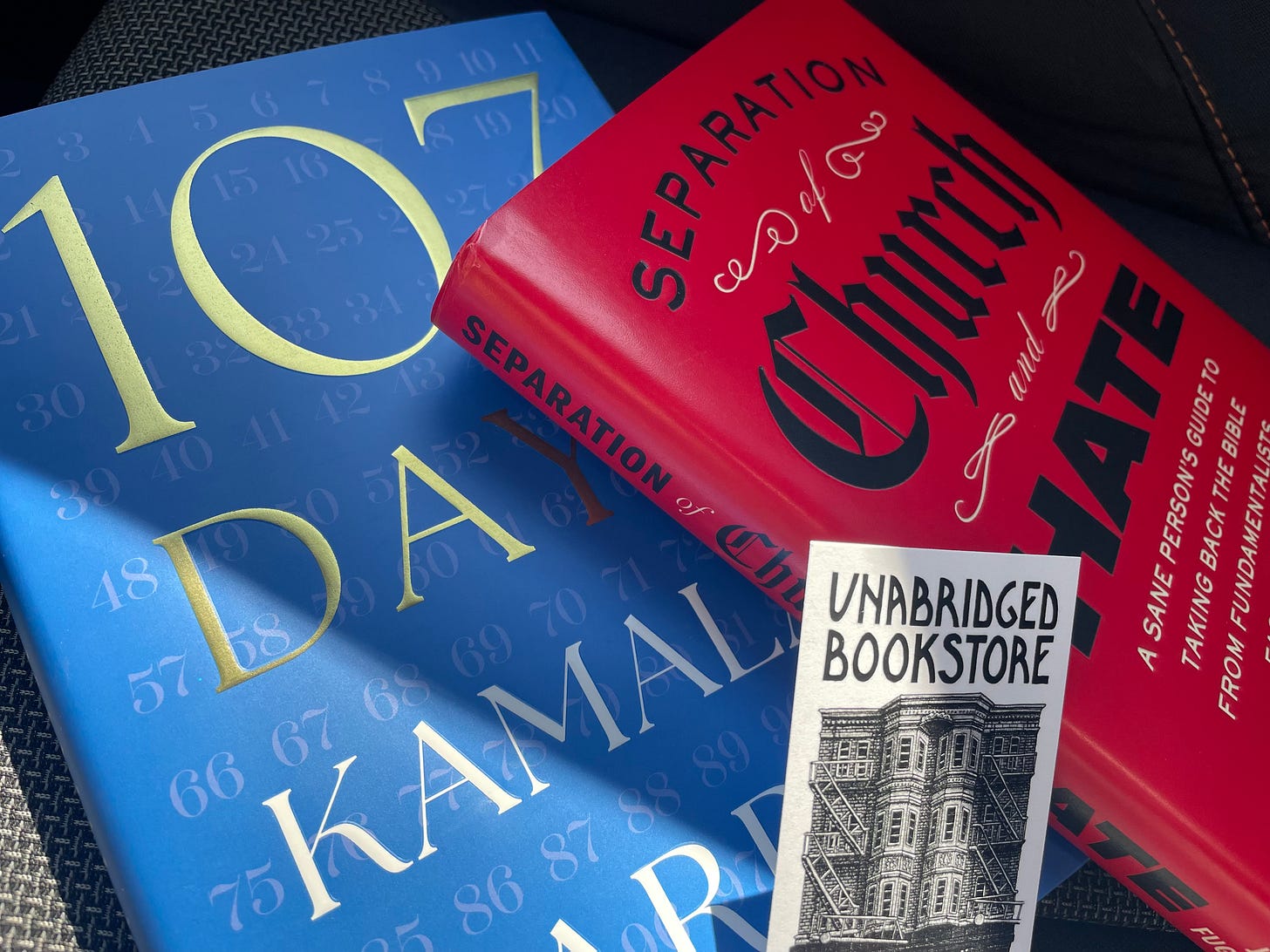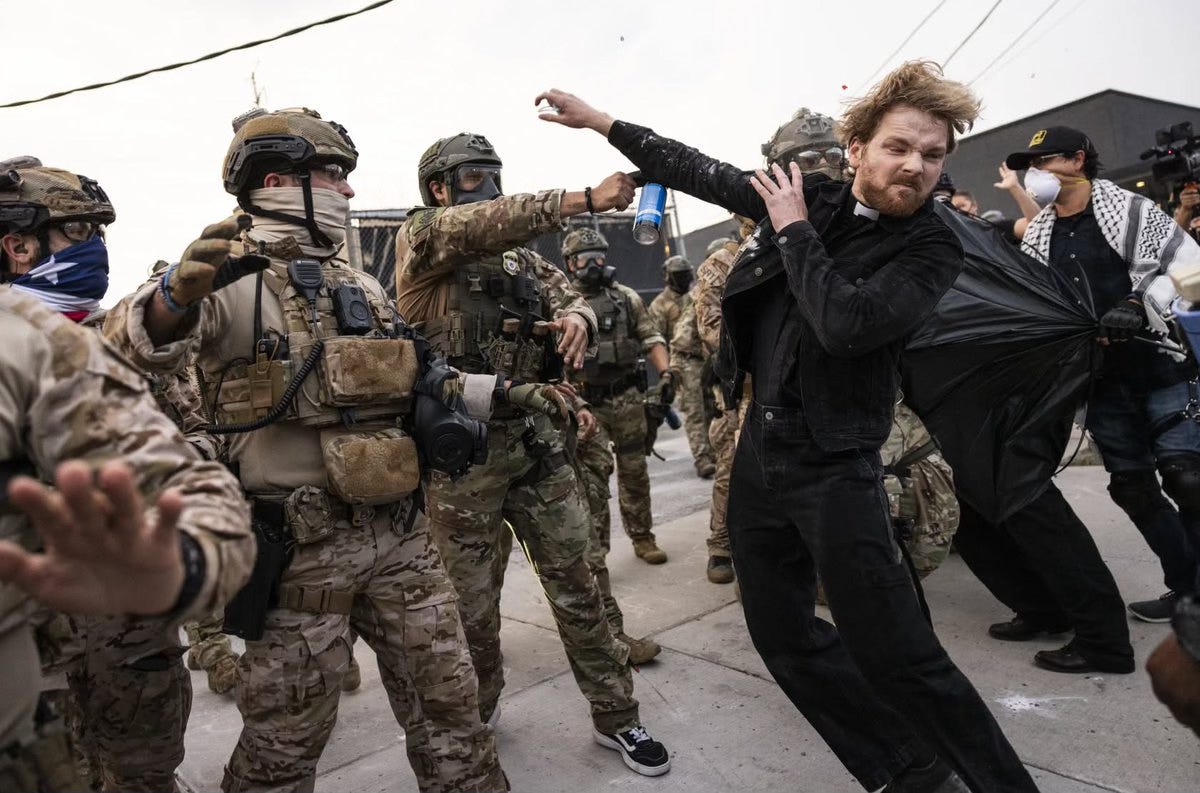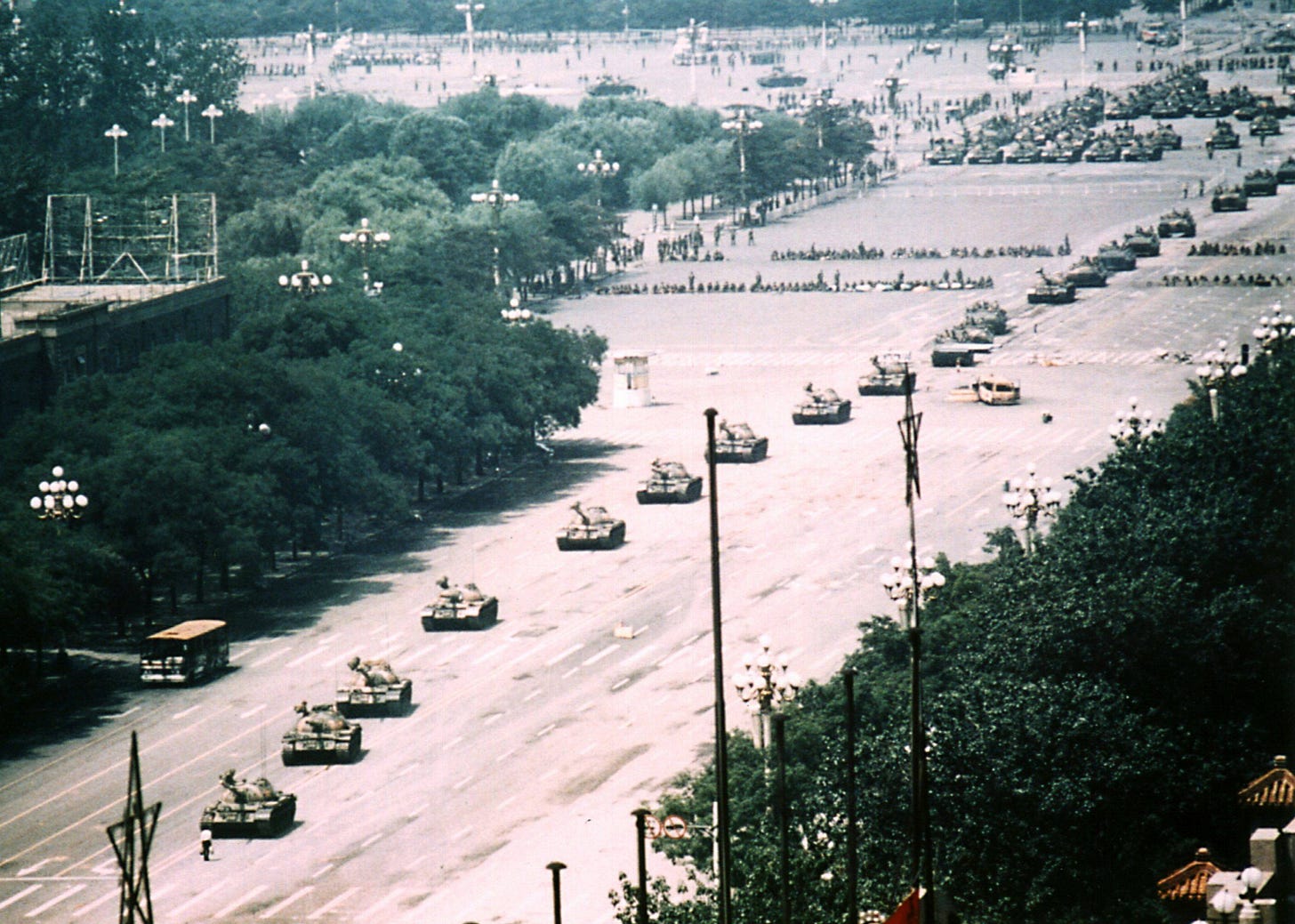On the way to Jerusalem, Jesus was going through the region between Samaria and Galilee. As he entered a village, ten lepers approached him. Keeping their distance, they called out, saying, “Jesus, Master, have mercy on us!” When he saw them, he said to them, “Go and show yourselves to the priests.” And as they went, they were made clean. Then one of them, when he saw that he was healed, turned back, praising God with a loud voice. He prostrated himself at Jesus’ feet and thanked him. And he was a Samaritan. Then Jesus asked, “Were not ten made clean? But the other nine, where are they? Was none of them found to return and give praise to God except this foreigner?” Then he said to him, “Get up and go on your way; your faith has made you well.” (Luke 17:11-19)
On Van Morrison’s album “Poetic Champions,” there is a delightful song celebrating the healing power of the Spirit titled Did Ye Get Healed? Giving credit where credit is due, Van Morrison notices, “Sometimes when the spirit moves me, I can do many wondrous things. I wanna know when the spirit moves you, did you get healed?”
Did you get healed?
For me, the world seems totally upside down and crazy. My hope gives way to despair. My laughter transitions into sighing and tears. My love for the world changes into cynicism and shame. I need healing. I need to feel the Spirit moving me. I need to move from disdain to gratitude. I even wonder, when trapped in this nightmare of desperation, if I have lost the spirit of awe, wonder, and thanksgiving.
With all going on, I may need a healing. What about you?
Just the other day, standing in a position of prayer, David Black, pastor of First Presbyterian Church of Chicago, was peacefully protesting outside an ICE processing facility in Broadview, Illinois, when ICE agents shot him in the head, face, torso, arms, and legs with exploding pepper pellets.
Pastor David shared, “I was standing there, incapacitated and vulnerable from a barrage of chemical pellets they had shot me with moments earlier. ICE gave no orders or warnings. All around me, they were slamming peaceful protesters into fences and into the ground, and moving in formation to isolate and assault anyone who was vulnerable.”1
Miles away, on the south side of Chicago, in the middle of the night, helicopters approached an apartment high-rise. They landed on the roof of a building, propelled down walls, then smashed into windows, pushed through, and captured stairways, traversing the hallways in military formation. After bashing down doors, they yanked children and mothers and fathers out of bed, hand-tied them, and paraded them outside, pushing them down on their knees. Most were in nightclothes, barely dressed. No search warrants, no Miranda read, lawless lawmakers exhibiting a total disregard for the law.
Jesus, we need a healing. “Jesus, Master, have mercy on us!”
As innocent people are scooped off the streets of Chicago, then jailed, and suddenly deported without due process, protestors have peacefully gathered outside of the Broadview Detention Center, calling for dignity, law, and order. It is hypocrisy to claim to follow Jesus while robbing the “other” of their dignity. How we treat the “other” directly correlates to the spiritual health of one’s heart and soul. Jesus responds with gratitude when, in the Gospel of Matthew, he reminds the crowd that he too was once a stranger and was welcomed. St. Benedict, in Chapter 53 of his Rule shares, “All guests are to be welcomed as Christ.”
Look around. How are we welcoming both friend and stranger? Is our greeting a response of thanksgiving for the beauty of God’s creation, or is it in the spirit of blasphemy, attacking and then destroying a fellow creature of God? Pope Leo XIV recently reminded the followers of Jesus that being “pro-life” requires a broader ethic that includes caring for all vulnerable individuals and upholding human dignity throughout each other's lives.
John Fugelsang, host of Tell Me Everything on SiriusXM Progress, has a new book out titled The Separation of Church and Hate: A Sane Person’s Guide to Taking Back the Bible from Fundamentalists, Fascists, and Flock-Fleecing Frauds.
Growing up Catholic on Long Island, John shares this, “I was taught - relentlessly - that Christianity was about the things Jesus prioritized: Service to others. Forgiveness. Caring for the poor, the sick, the stranger, the prisoner. Fight injustice with nonviolence, like Dr. King and Gandhi. Standing up for the less fortunate, like Dorothy Day and Catholic Charities. Love. Empathy. Compassion. And go wash your hands, we’re leaving for Mass in five minutes.”2
In the introduction to his book, John Fugelsang reminds us that
Jesus was:
A peaceful, radically nonviolent revolutionary
Who wasn’t American and never spoke English
Who hung around lepers, hookers, and crooks
Never sought tax cuts for rich Nazarenes
Was anti-wealth and anti-death penalty
Anti-public prayer, too (Matthew 6:5)
Never asked lepers for a co-pay
Never called poor people “lazy”
Never even slightly antigay
Never mentioned abortion
Supported paying taxes
And was a long-haired
Community-organizing
Authority-questioning
Anti-slut-shaming
Brown-skinned
Palestinian
Unarmed
Homeless
Jew. . .but only if you believe what is actually in the Bible.3
I wonder if from this Jesus, the Jesus we meet in the Gospel writings and through the letters of Paul, we even want the healing Christ offers. From watching episodes of Law and Order, Chicago Med, and The Pit, if the Jesus described above walked into the ER to offer healing, some “Christian” white supremacist would refuse treatment. The Jesus of history would be captured by ICE and dumped into a detention center. Alligator Alcatraz, and even the detention center just outside of Chicago, are twenty-first-century concentration camps sponsored by our fascist America.
For the love of God, we need healing.
This God of creation, whom we crucified, continually offers us love, healing, and reconciliation. Still, we have to say “yes” to this gift. We have to notice and appreciate it. We need to express gratitude for being healed, then share the gift of healing with others as an expression of thanksgiving.
It is so easy to take for granted the gift of healing.
Naaman, commander of the army of the king of Aram, was a great man and in high favor with his master, because by him the Lord had given victory to Aram. The man, though a mighty warrior, suffered from leprosy. Now the Arameans on one of their raids had taken a young girl captive from the land of Israel, and she served Naaman’s wife. She said to her mistress, “If only my lord were with the prophet who is in Samaria! He would cure him of his leprosy.”
When the king of Israel read the letter, he tore his clothes and said, “Am I God, to give death or life, that this man sends word to me to cure a man of his leprosy? Just look and see how he is trying to pick a quarrel with me.”
But when Elisha the man of God heard that the king of Israel had torn his clothes, he sent a message to the king, “Why have you torn your clothes? Let him come to me, that he may learn that there is a prophet in Israel.” So Naaman came with his horses and chariots, and halted at the entrance of Elisha’s house. Elisha sent a messenger to him, saying, “Go, wash in the Jordan seven times, and your flesh shall be restored and you shall be clean.” But Naaman became angry and went away, saying, “I thought that for me he would surely come out, and stand and call on the name of the Lord his God, and would wave his hand over the spot, and cure the leprosy! Are not Abana and Pharpar, the rivers of Damascus, better than all the waters of Israel? Could I not wash in them, and be clean?” He turned and went away in a rage. But his servants approached and said to him, “Father, if the prophet had commanded you to do something difficult, would you not have done it? How much more, when all he said to you was, `Wash, and be clean’?” So he went down and immersed himself seven times in the Jordan, according to the word of the man of God; his flesh was restored like the flesh of a young boy, and he was clean.
Then he returned to the man of God, he and all his company; he came and stood before him and said, “Now I know that there is no God in all the earth except in Israel.” (2 Kings 5:1-3, 7-15c)
We meet Naaman, commander of the army of the king of Aram, who is suffering from leprosy. When offered the possibility of healing through a simple bath in the river, Naaman responds with anger, frustration, and entitlement. “I deserve a much more spectacular healing. Do you know who I am?”
Like Naaman, I wonder how often I have seen simplicity as a second-rate solution. I wonder when I have protested, refusing to be healed. True healing requires change, a significant rearranging of internal and external things.
Jesus was traveling on a road between Samaria and Galilee. As he entered a village there, he encountered lepers, priests, bystanders, and Samaritans. Out in the crowd, the lepers called out, begging to be healed. Jesus’ response was simple: “Show yourself to the priests.” As they traveled toward the temple, they were cured of their leprosy. But only one turned around, went to Jesus, and expressed gratitude.
In The Dialogue of Divine Providence, St. Catherine of Siena suggests, “The more the soul is healed, the more it desires to be healed, for the clearer it sees the infinite beauty of God.”
Perhaps the ability to get out of bed in the morning is a form of healing. I wonder how many healings happen within my body and spirit every day that go unnoticed. I take for granted that each breath in and each breath out is a moment of healing. When do I need to stop, pause, breathe, and give thanks?
I wonder if you have experienced healing in the last few hours, few days, few weeks, or few months? And what did you do about it?
Van Morrison sings to us, “I begin to realize it manifests in my life in so many ways. Every day I wanna talk about it and walk about it. Every day I wanna be closer.”
Healing comes to us in many forms. There is healing of the body, when strength is restored and pain gives way to peace. There is healing of the heart and mind, when fear, shame, anxiety and sorrow begin to loosen their hold. There is spiritual healing, when we are drawn once more into right relationship with God and with one another. And there is the deeper, existential healing of the soul—a quiet reordering of our inner life, a gentle turning of the pilgrim heart toward its true home in the vast and mysterious love of God.
And sometimes, in times such as these, there is a cosmic healing of creation which can come through protest, through good trouble, through reaching out, and standing up.
Many of us remember the image. A skinny man standing in front of a line of tanks. He refused to move. He waved his arms back and forth, signaling for the tanks to go around him. He was standing his ground. The world around him was broken. There was blood on the streets. Many needed to be healed. Many had died and would not have the chance to heal on this side of the grave. But for those of us who watched, there was the chance to change, the change to make a choice, the chance to be healed.
The man looked so small as he bravely blocked this show of military might. A world watched it all live, breathless, gathered around TV sets tuned in to CNN.
Wang Weilin, a twenty-six-year-old printer, brought a tank parade to a halt. This occurred on Chang’an Boulevard, a major thoroughfare leading to Tiananmen Square. It was June 5, 1989.
When the lead tank tried to maneuver around Wang, he would move to step into its way. It has been reported that Weilin climbed onto the tank and shouted at the soldiers inside, asking, “Why do you come to my city? You have brought only misery. We do not need you. You go back!”
After his insults, he was dragged swiftly away by the military in front of the eyes of the world.
Years later, Barbara Walters interviewed Deng Xiaoping and asked what had happened to Want Weiling. He replied, “I think not killed.”
What brought Weilin to the middle of the street?
On June 4, 1989, the government of the People’s Republic of China opened fire on its own people. It all began during the Spring of that year with a death. Hu Yaobang, the liberal secretary of the Chinese Communist Party, had died. He was held in very high regard by many.
Many felt that the march toward democracy for the people of China would die alongside the beloved secretary. The government denied Hu Yaobang a state funeral. Students were furious and began to organize. Their hero had to be honored. They carried black wreaths and huge pictures of Hu Yaobang and set them on the Monument to the People’s Heroes which is an imposing stone structure in the middle of Tiananmen Square, directly between Mao Zedong’s Mausoleum and Tiananmen Gate, the entrance to the Forbidden City.
The government denounced the students’ actions, and the students were furious. People across the People’s Republic of China began to make their way towards Tiananmen Square. Tiananmen Square represents the heart and soul of the people of China.
After many days of protesting, shortly after midnight on May 20, martial law was declared, and all were told to leave Tiananmen Square. They didn’t. During the days that followed, helicopters and military planes constantly practiced maneuvers above the student protesters.
As May gave way to June, troops began traveling from the outskirts of Beijing toward the square to restore order. Beijing’s citizens poured out of homes and businesses to appeal to the troops, offering gifts of reconciliation, such as food and drink. Some troops, moved by their comrades, would eventually turn around and leave.
However, on June 3, announcements were made warning the citizens of Beijing to remain in their homes or the consequences could be devastating. Fires, gunshots, and confrontations took place on all major highways leading to the square. Citizens hoped to prevent a bloody confrontation, but the troops advanced.
The lights in Tiananmen Square went off, and the massacre began.
Instead of healing, the government answered with death.
Later, when reflecting on the events of Beijing Spring 1989, student leader Wang Dan invoked the Chinese fable The Foolish Old Man Who Removed the Mountains (愚公移山, Yúgōng yí shān), sharing, “The old man who moved the mountain is a fool, they said. But he kept digging, and generation after generation, the mountain was moved.”
And like China, the United States of America stands at the crossroads.
Do we seek healing? Or do we choose death?
Kamala Harris, in her book 107 Days, her reflection on the 2024 presidential campaign, shares this: “What we the people must understand is that the dismantling of our democracy did not start with the 2024 election.
“The right-wing and religious nationalists have played the long game, working for decades to take over state houses, gerrymander districts, and dominate local government boards. Their think tanks like the Federalist Society created the blueprint for stacking the Supreme Court, while the Heritage Foundation created Project 2025.
“Their plans have been amplified by the rise of a right-wing media ecosystem built to operationalize their agenda through massive propaganda, misinformation, and disinformation. Trump was their vehicle, his road paved for him, years earlier, by a hot and pungent brew: Ronald Reagan’s celebrity, Newt Gingrich’s belligerent discourse, and Pat Buchanan’s nativism.
“Don’t be duped into thinking it’s all chaos. It may feel like chaos, but what we are witnessing is a high-velocity event, the swift implementation of an agenda that was written many decades ago.”4
I believe that during the last presidential election, we firmly rejected health, healing, and happiness and elected hate, division, greed, and authoritarianism. Do we want the healing that Jesus offers, which comes through love of God, love of self, and love of neighbor?
Like Namaan, we may believe we are entitled to delusions of grandeur and reject a rather humble but simple path towards love and healing - a water bath Christians call baptism. Like the lepers who didn’t respond in gratitude after being healed, we may feel like we are entitled to believe that the God who created us saves us, but Jesus tells us that our faith will make us well. Like Wang Weilin, we must stand in the streets surrounded by blood and death and call out violence, sickness, and destruction when we witness it, knowing that, by faith, the world is watching even when our fellow citizens are not.
quoted on Yahoo News
Fugelsang, John. The Separation of Church and Hate: A Sane Person’s Guide to Taking Back the Bible from Fundamentalists, Fascists, and Flock-Fleecing Frauds. New York: Avid Reader Press / Simon & Schuster, 2025, p 3.
Ibid., introduction.
Harris, Kamala, with Geraldine Brooks. 107 Days. New York: Simon & Schuster, 2025, p. 296.






Wake up 30 minutes before Sunrise and find a comfortable place to sit facing East. Bring a beverage of choice, if needed. The sky gets lighter, little pink fingers of dawn appear and grow and merge into a glow. That is how the Holy Spirit greets me when I feel lost. The Spirit will then direct you, if you listen.